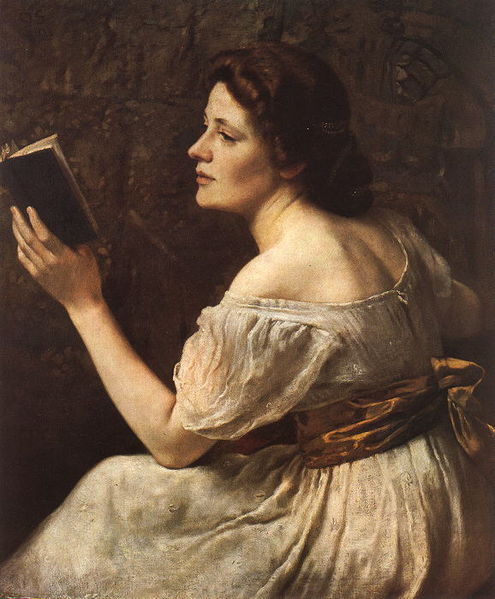Poetry, Philosophy and Madness in Plato
DOI:
https://doi.org/10.7146/rc.13104634Resumé
Plato’s unease with the (mimetic) poets is well-known from his expulsion of them from his city-state in The Republic, where they embody the very inversion of philosophical self-understanding. Philosophy – which is guided by reason (λόγος), wisdom (σοφία), and self-control (σωφροσύνη) – is here (and elsewhere in his works) seen to find itself in the highest opposition to poetry inasmuch the latter dangerously provokes desire (ἔρος), pleasure (ἡδονή), and madness (μανία). Here philosophy is understood as a praxis of reason, establishing an ideal, active, and self-determined homogeneity opposed to poetry, understood as an illusory, passive, and alienated heterogeneity. However, poetry is more positively presented in Phaedrus (and to some extent in Ion). Things seem to have been turned upside-down, since philosophy now is presented as a twin brother to poetry, as both originate from god given madness.
Referencer
Aristotle. Athenian Constitution, Eudemian Ethics, Virtues and Vice. Loeb Classi-cal Library, trans. H. Rackham. Cambridge, Massachusetts: Harvard University Press, 1971.
Balsamo, Gian. Pruning the Genealogical Tree: Procreation and Lineage in Litera-ture, Law, and Religion. Lewisburg, Pennsylvania: Bucknell University Press, 1999.
Carter, Robert Edgar. “Plato and Inspiration”. Journal of the History of Philos-ophy 5/2 (1967): 111-121.
Chantraine, Pierre. Dictionnaire étymologique de la langue grecque: Histoire des mots 1-4. Paris: Klincksieck, 1968-80.
Claude Calame. The Poetics of Eros in Ancient Greece. Trans. Janet Lloyd. Princeton: Princeton University Press, 2013.
Colli, Giorgio. La nascita della filosofia. Milano: Adelphi, 1980.
Descartes, René. The Philosophical Writings of Descartes 1. Trans. John Cottingham, Robert Stoothoff, and Dugald Murdoch. Cambridge : Cambridge University Press, 1999.
Euripides. Fragments: Oedipus-Chrysipus, Other Fragments. Loeb Classical Li-brary, trans. Christopher Collard and Martin Cropp. Cambridge, Mas-sachusetts: Harvard University Press, 2008.
Frisch, Otto R. What Little I Remember. Cambridge: Cambridge University Press, 1980.
Gonzalez, Francisco J. “The Hermeneutics of Madness: Poet and Philoso-pher in Plato’s Ion and Phaedrus”. Ed. Pierre Destrée and Fritz-Gregor Herrmann. Plato and the Poets. Leiden/Boston: Brill, 2011.
Güven, Ferit. Madness and Death in Philosophy. Albany: State University of New York Press, 2005.
Heidegger, Martin. Nietzsche 3 & 4. Ed. David Farrell Krell. New York: HarperCollins, 1991.
Lacoue-Labarthe, Philippe. Typography: Mimesis, Philosophy, Politics. Ed. Chris-topher Fynsk. Stanford, California: Stanford University Press, 1998.
Nussbaum, Martha C. The Fragility of Goodness: Luck and Ethics in Greek Trag-edy and Philosophy. New York: Cambridge University Press, 1988.
Pindar. Nemean Odes, Isthmian Odes, Fragments. Loeb Classical Library, trans. William H. Race. Cambridge, Massachusetts: Harvard University Press, 1997.
Plato. Euthyphro, Apology, Crito, Phaedo, Phaedrus. Loeb Classical Library, trans. Harold North Fowler. Cambridge, Massachusetts: Harvard Uni-versity Press, 1999.
––. Laws. Loeb Classical Library, transl. R. G. Bury. Cambridge, Massachus-etts: Harvard University Press, 1961.
––. Lysis, Symposium, Gorgias. Loeb Classical Library, transl. W. R. M. Lamb. Cambridge, Massachusetts: Harvard University Press, 1996.
––. Statesman, Philebus, Ion. Loeb Classical Library. Trans. Harold North Fowler and W. R. M. Lamb. Cambridge, Massachusetts: Harvard Uni-versity Press, 1925.
––. The Republic. Loeb Classical Library, trans. Paul Shorey. Cambridge, Massachusetts: Harvard University Press, 1999.
––. Theaetetus. Sophist. Loeb Classical Library, trans. Harold North Fowler. Cambridge, Massachusetts: Harvard University Press, 1921
Popper, Karl. The Logic of Scientific Discovery. London: Routledge, 1992.
Rousseau, Jean-Jacques Rousseau. Julie, or the New Heloise: Letters of Two Lov-ers Who Live in a Small Town at the Foot of the Alps. Ed. and trans. Philip Stewart and Jean Vaché. Collected Writings of Rousseau 6. Hano-ver/London: University Press of New England, 1997.
Sallis, John. Being and Logos: The Way of Platonic Dialogue (Second Edition). Atlantic Highlands, New Jersey: Humanities Press International, 1986.
Xenophon. Memorabilia. Oeconomicus. Loeb Classical Library, trans. E. C. Marchant. Cambridge, Massachusetts: Harvard University Press, 1968.
Downloads
Publiceret
Citation/Eksport
Nummer
Sektion
Licens
Beskriv vilkårene her! Denne tekst dukker op under distribuering og licens

